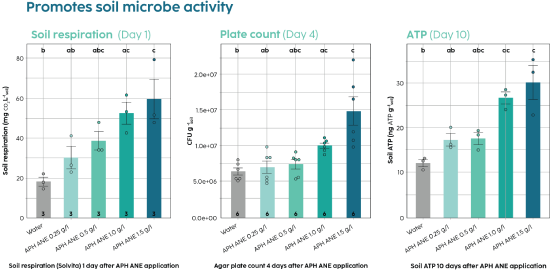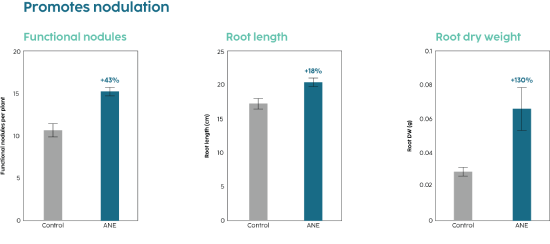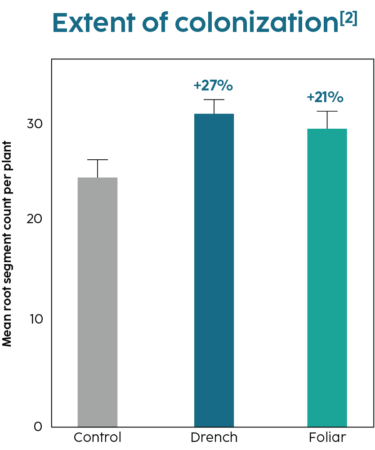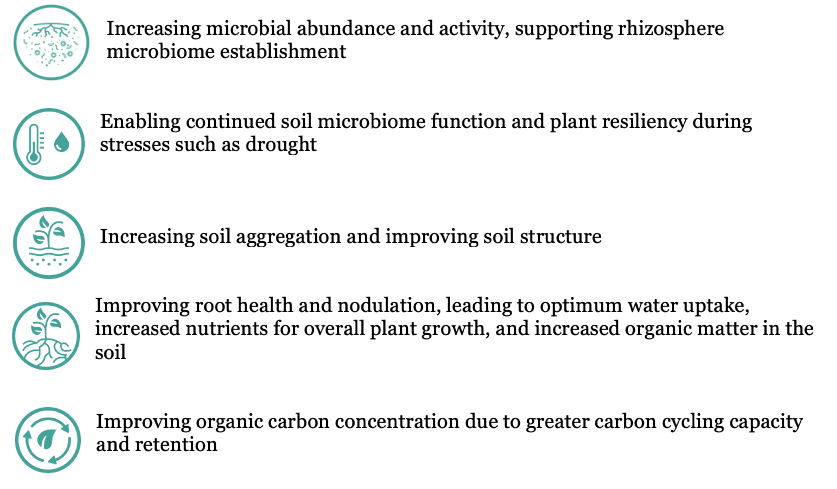
Brought to you by Acadian Plant Health
Boost soil health with biostimulants

September 25, 2024 in News
Growers have long known that a delicate balance between physical, chemical, and biological factors influences yield, crop growth, and crop success.
Soil health greatly determines the ability to grow healthy, productive crops. Using an Ascophyllum nodosum-based biostimulant such as Stella Maris as part of an integrated strategy aims to enhance crop and soil management practices. By improving communities of soil microbes, soil health and crop productivity have the potential to reach peak performance.
The rundown on soil health
Soil health is a measure of the capacity of soil to function as a vital living ecosystem, sustaining plants, animals, and humans. The Soil Health Institute has identified three measurements as crucial indicators: 1) Soil aggregation, 2) Increased soil organic matter, and 3) Active soil microbes (carbon mineralization).
The abundance and diversity of soil microbes can influence plant growth and productivity and play a vital role in plant health. They aid in nutrient cycling, better soil structure, increase soil’s water-holding capacity, and more.
Digging deeper into soil health
Microbes in the rhizosphere called arbuscular mycorrhizal fungi (AMF) colonize more than 80 per cent of land plants, including crops.
AMF form symbiotic relationships with plants; the AMF need a host plant to create carbohydrates and carbon. Carbon derived from roots during growth and then as root residues play a critical role in increasing soil carbon. In return, AMF extends the reach of the plant’s root system. This provides the host plant with better nutrient access, water access and retention, stress tolerance, and protection against pathogens.
AMF also benefit soil with better aggregation and structure, which aids in storing water, nutrients, and soil carbon.
What happens when soil microbes team up with biostimulants?
Evidence shows that applications of Acadian Plant Health Ascophyllum nodosum seaweed-based biostimulants increase biodiversity, biomass, and microbial activity in the rhizosphere.

APH’s seaweed extracts improve microbial abundance and growth through multiple mechanisms. Soil respiration is linked to soil’s ability to cycle carbon and nutrients. Increased plate counts indicate APH products support greater microbial abundance, and increased ATP indicates a rise in living microbes.

[1] Kahn, W., Palanisamy, R., Critchley, A. T., et al. (2013). “Ascophyllum nodosum Extract and Its Organic Stimulate Rhizobium Root Nodulation and Growth of Medicago sativa (Alfalfa).” Communications in Soil Science and Plant Analysis, 44(5), p. 900-908.
 Both soil and foliar applications of Ascophyllum nodosum increase AMF colonization, germination, branching, and growth. Ascophyllum nodosum enhances mycorrhization through AMF growth and stimulation of the plant’s accommodation of the rhizobia. Together, they promote the establishment of this vital plant-microbe symbiosis.
Both soil and foliar applications of Ascophyllum nodosum increase AMF colonization, germination, branching, and growth. Ascophyllum nodosum enhances mycorrhization through AMF growth and stimulation of the plant’s accommodation of the rhizobia. Together, they promote the establishment of this vital plant-microbe symbiosis.
________________________________
[2] Hines, S., van der Zwan, T., Shiell, K. et al. “Alkaline extract of the seaweed Ascophyllum nodosum stimulates arbuscular mycorrhizal fungi and their endomycorrhization of plant roots.” Sci. Rep. 11, 13491 (2021). https://doi.org/10.1038/s41598-021-93035-9
Acadian biostimulants create stronger soil and plant health by…

The path to victory
Without soil health, there is no plant health. Adding Stella Maris to crop management plans can unlock synergies to enhance crop productivity, increase soil health, and lay the groundwork for future yields.
Find out how at acadianplanthealth-na.com/resources/soil-health/
Advertisement
- Supporting your agronomy team this harvest
- Change the game with BY 7204LL, BrettYoung’s newest canola hybrid with LibertyLink technology